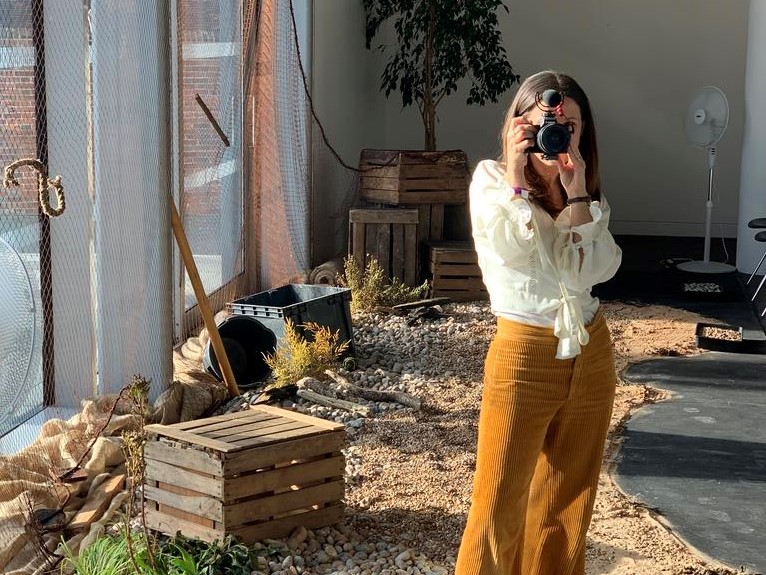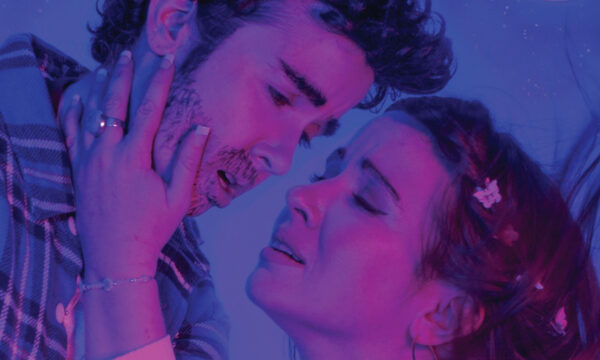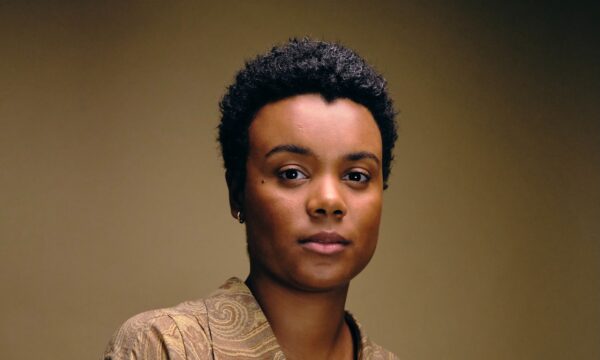Bottled Dreams of Better Days: An interview with Lisa Ralph, artistic director of Fair Shake Theatre

Right now, the dream of “better days” seems more like a fantasy – something to wish for, fully aware that, for now, it cannot be attained. As we collectively battle with Covid-19, with our mental health and with global warming, wanting a better tomorrow is ostensibly a fool’s errand… but not for Fair Shake Theatre. Not only that, but they’re making sure that everyone can be involved: that the “better days” of tomorrow are accessible to all.
We sat down with the artistic director of Fair Shake, Lisa Ralph to discuss what it meant to make art accessible, how the industry is currently changing, and all the fun to be had over Zoom.
First and foremost, how has this roller coaster of a year been for you?
Like everyone, it has come with its challenges and changes as a result of the pandemic. The saddest part is witnessing the negative impact on individuals, communities and society at large. What has been inspiring is how people have dedicated themselves to helping others and been creative and adaptable to move forward. The memory that will stay with me was clapping with my neighbours to show our appreciation to our amazing NHS and the key workers who have worked tirelessly throughout.
Fair Shake were incredibly fortunate and grateful to receive funding from Arts Council England to produce Bottled Dreams of Better Days: Digital, allowing us to explore how to make digital work, further develop our approach and most importantly employ artists in what has been a financially challenging time for many.
To those who may not know it, what is Fair Shake Theatre and what was the impetus behind its creation?
Fair Shake Theatre produces inclusive theatre that is relevant and challenging. The company works to empower artists as co-creators, using accessible creative approaches at the core of our process, where diversity and inclusivity are at the heart.
Every aspect of the company’s process is accessible to disabled artists and audiences. This includes equal access to castings, auditions, rehearsals, communication methods, workshop participation and performance. This is through the use of creative and accessible approaches including Makaton, BSL, symbols, audio description and the creation of sensory environments.
Last year Fair Shake was selected to be part of the Marlowe ROAR Artists Development Programme at the Marlowe Theatre, Canterbury. It was there that we developed the idea of Bottled Dreams of Better Days. We explored the themes of plastic pollution on Kent beaches, hope and dreams and the arrival of refugees to its shoreline. The piece was devised by the company and performed on a sensory set to recreate the Kent shoreline. During the public sharing, audience members were invited to explore the beach, which included sand, stones, plants, items found on a beach, litter, wind and sounds.
Fair Shake has always prioritised the accessibility of art – both in its creation and enjoyment – especially when it comes to engaging with disabled artists and audiences. In an interview with DadaFest in 2017, critically acclaimed director and disabled artists’ advocate Jenny Sealey said, “There is still ‘cripping up’ (as in, able-bodied artists ‘performing’ disabilities like being visually-impaired, neurally-diverse etc) happening, which is totally galling, given there is so much disabled talent, but people are becoming more aware of how crass this is and are thinking about casting in a different way.” In your experience of making accessible theatre, do you feel the industry is still set up against disabled people, and what more can creatives do to facilitate inclusion?
I have observed a positive shift from many companies and venues to facilitate inclusion. The more organisations place access in their thinking every time they make a decision, positive change will continue to be made, but still more needs to be done.
Taking the time to ask questions and gain advice and insight is incredibly important. When setting up Fair Shake, I spent a whole year connecting with artists and organisations, allowing Fair Shake to benefit from the expertise of leading artists with a focus on inclusion and access. One of the first people to generously give me their time was in fact Jenny Sealey [hearing impaired actor/director], whose advice was a huge help when developing my ideas for the company. Other organisations, including Carousel, who created the digital design elements of the show, also shared their experience and knowledge that fed into the company’s development.
We also value our artists’ and audience’s feedback. We schedule this as a central part of our planning to ensure that we are continuing to provide an accessible experience.
Fair Shake values the skills and talent of the disabled artists that we collaborate with. There are so many talented disabled artists out there, that it is the interest of both creative organisations, artists and audiences that more accessible work is created so that inclusive and diverse work is made.
Let’s talk about Bottled Dreams of Better Days Digital – where did the idea come from?
Bottled Dreams of Better Days Digital is a new piece of digital theatre, devised and created by Fair Shake Theatre in collaboration with writer Athena Stevens. This live-streamed Zoom piece draws on the world of the Bottled Dreams live play, which was developed by the company last year.
During a community beach clean initiative on a Kent beach, we follow three characters as they navigate the events of 2020, attempting to connect during Zoom meetings and socially-distanced meetups. The piece explores the themes of plastic pollution and the rise of PPE found on the coastline, people’s hopes and dreams, and the arrival of refugees to Kent’s shoreline. The show integrated Makaton and audio description, and included British Sign Language interpretation and captioning.
Bottled Dreams of Better Days was first performed at the Marlowe Theatre last year. How was the response during that initial run, and what made you choose this show to return in Zoom form?
We received some really positive feedback when Bottled Dreams of Better Days was performed at the Marlowe. Audience members were invited to ask questions and offer their thoughts at the end of each performance; they were also encouraged to give responses at our inclusive feedback station. Some of the feedback we received included: “Cathartic, funny and important. I love how your feedback methods are accessible,” “Thoughtful, brave, poignant,” “Inclusive, current, meaningful”…
When lockdown started we were presented with the question, “How are we going to continue to make work in a socially-distanced way?”. Although potentially daunting, working on Zoom offered another platform to create and share work. It was exciting to develop a play using more than one means – a blended approach to theatre making. The initial play’s themes seemed more relevant than ever, and it was intriguing to explore the three original characters’ responses to the pandemic, and their role in the beach clean initiative.
Working online, where artists and audiences can engage from their own homes, also offered another opportunity for access.
How have you found this move to Zoom and translating the ambitious sensory set into a new format?
We were excited to explore how we could translate creating a sensory experience into the digital sphere.
Through the use of green screen and innovative design we were able to simply and effectively create a sense of place, including the characters’ homes and the Kent beach they clean. We also worked with sound. Creating the idea of the shoreline in this way helped us to bring the world of the play onto our audiences’ computer screens.
One of our focuses is to create a sensory-rich environment for both audience and artists; using objects is one of the ways that we do this. Posting surprise objects to the performers was a fun and creative way to develop character and create story content, and many of the ideas created in this way ended up in the final piece.
The team you’ve assembled for Bottled Dreams of Better Days is impressive (Olivier-nominated writer Athena Stevens and celebrated industry stalwart Sam Barnard just to name two). How was the process of working with them, especially in a socially-distant world?
We were privileged to work with such a wonderful team of artists. All were true collaborators, and without their fantastic input the project would not have been possible.
It was exciting to have Athena as part of the team – her skills as a writer really helped to elevate the work to a new level. We had been aware of Athena’s work and were interested in collaborating with her; we invited her to come and meet with us, and I was thrilled when she was keen to work together on this project.
Sam Barnard, along with fellow performers Kat Dulfer and Omar Al Khina, were the original company formed last year at the Marlowe Theatre. It was through auditions for Bottled Dreams of Better Days that we met all three artists. They are all brilliant and work generously and fearlessly, which is incredibly fruitful to develop new ideas.
Overall, it was a creatively rich and collaborative process. There are opportunities, discoveries and challenges when creating a live digital play. All our artists were open to discovering a new way of working, and it was the sense of teamwork, creative exploration and making a relevant and accessible story that enabled the creation of Bottled Dreams of Better Days: Digital.
Earlier this year the UK government was criticised for not featuring BSL versions of their daily Coronavirus updates or addresses, effectively removing certain people from the conversation. Why do you think the UK, or indeed the world at large, still has so much ground to cover in the quest for true accessibility?
The personal impact of Covid-19 on the lives of Deaf/Disabled people has highlighted the need for greater access and inclusion within the UK. On 24th June 2020 Inclusion London produced an interim report The Impact of the Coronavirus on Disabled People, which stated: “Disabled people have been discriminated against, forgotten, and in some cases abandoned as policymakers have ignored our needs. Or, at best considered us as an afterthought.”
More needs to be done to ensure that a diverse range of voices are part of the conversation during policy making and communication, so that all members of society are included, valued and have meaningful input.
What’s next for Fair Shake? Will you move more into online spaces following Bottled Dreams of Better Days Digital, or are you eager to move back towards live performances – or perhaps a mix of both?
We are interested in continuing working between the two spaces and how we can explore further the relationship between them. Making Bottled Dreams of Better Days: Digital has given us further inspiration and we are excited to continue growing and sharing our work in the future.
Samuel Nicholls
Photo: Fair Shake Theatre
For further information about Fair Shake Theatre and future events visit the company’s website here.

























Facebook
Twitter
Instagram
YouTube
RSS